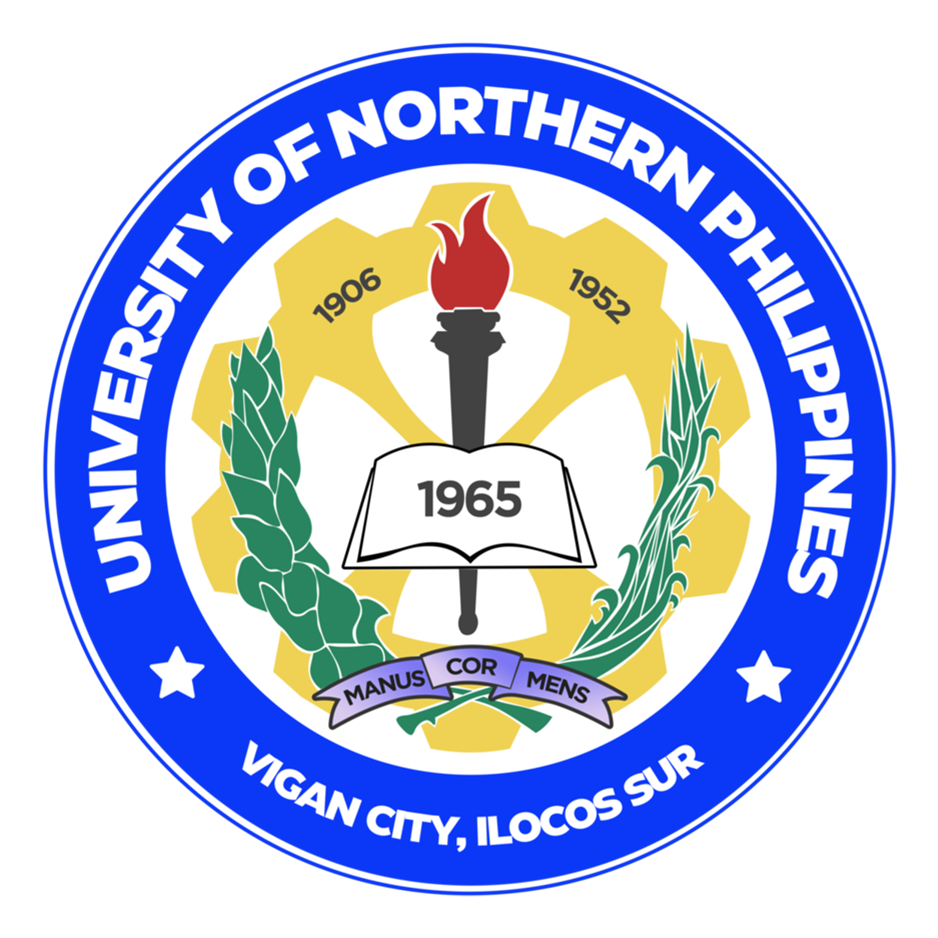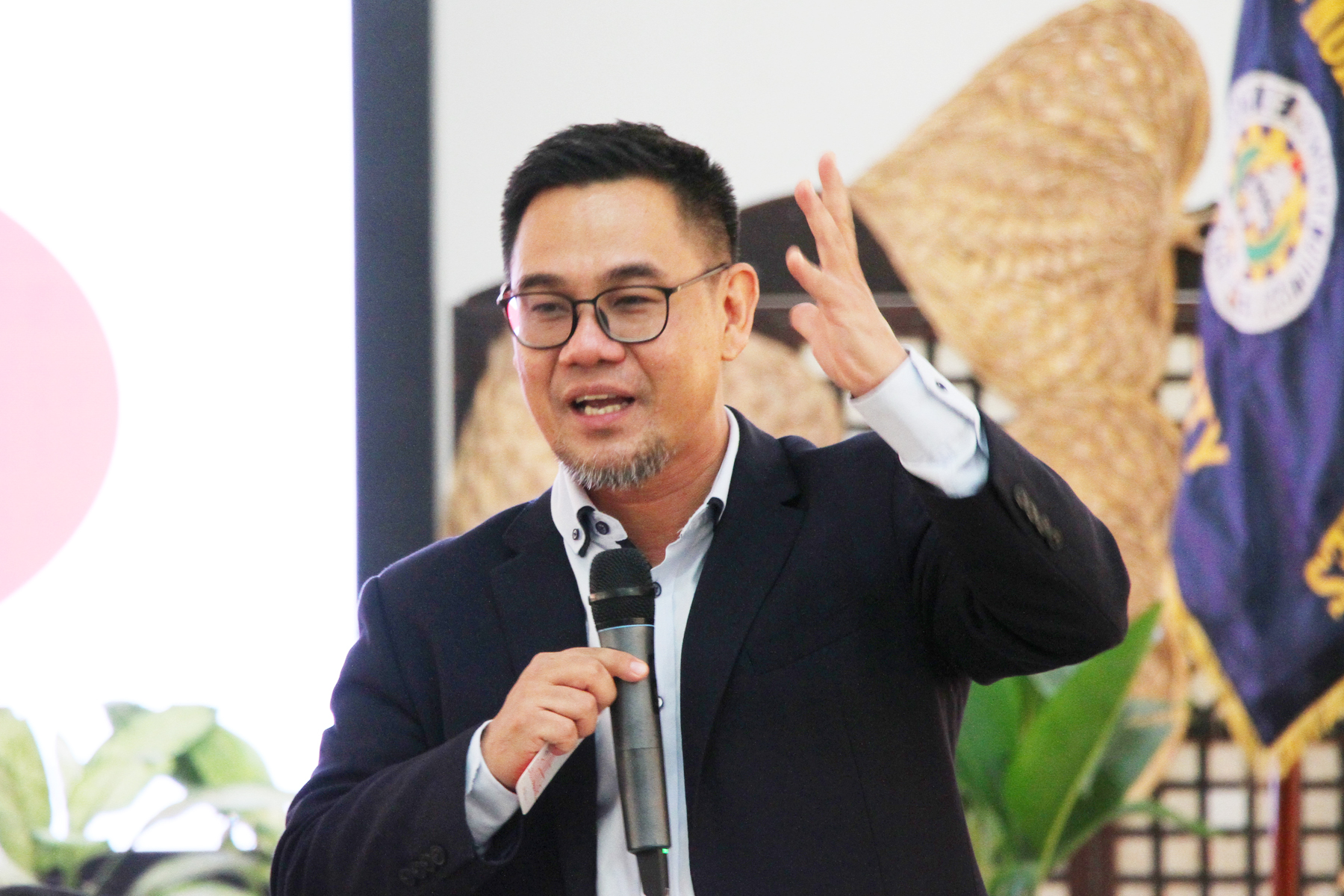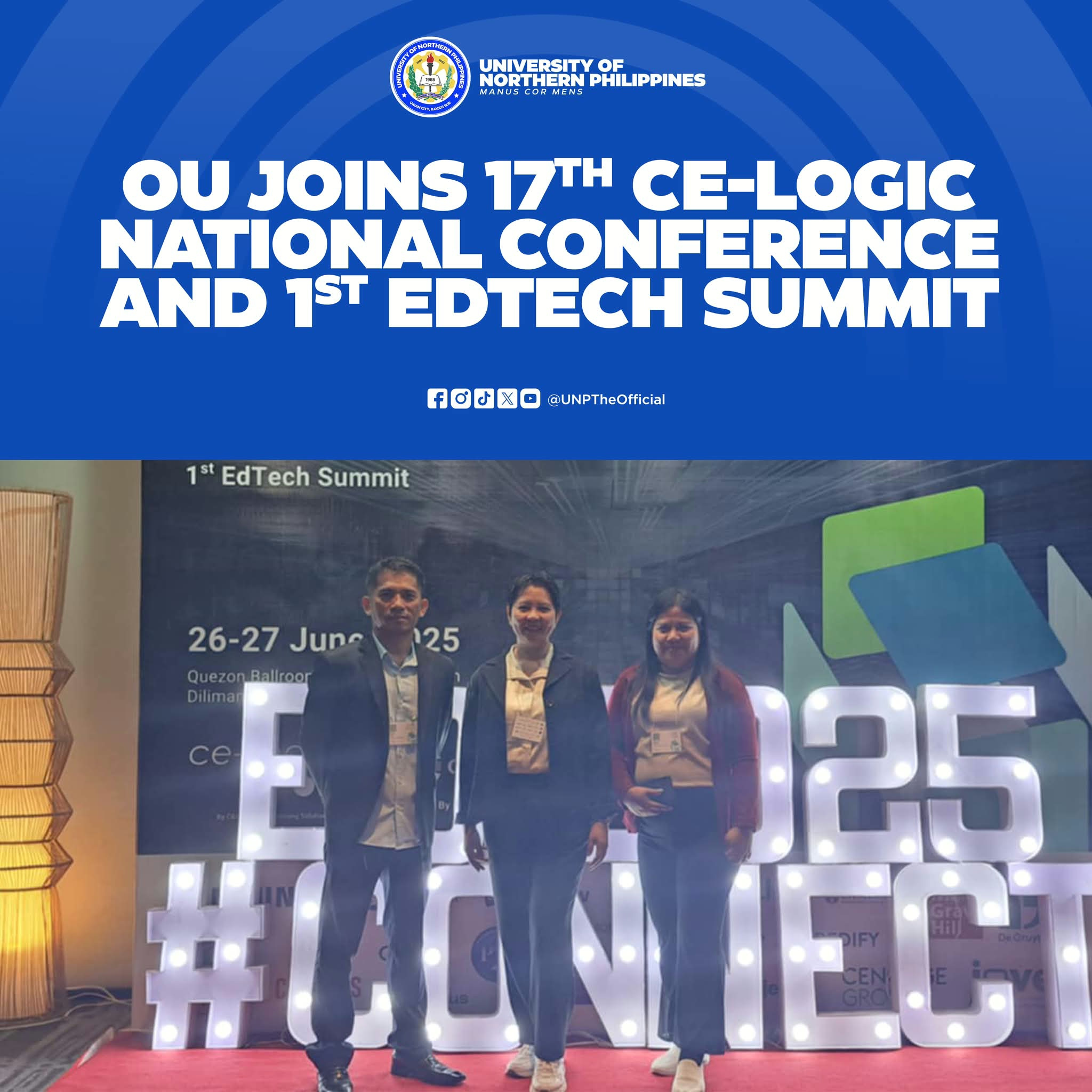How can individuals prepare for the future?
Such is the overarching point of the Seminar-Workshop on Curriculum and Design on Leading from the Future: An Introduction to Futures Thinking, Engaged Foresight, and Moonshots.
Held at the Tadena Hall, the 11-day training has three components, namely: Innovation (December 7, 8, and 11), Capacity Development (December 12, 13, 14, and 15), and Scenario Planning and Strategy Development (December 18, 19, and 22).
Invited by Dr. Edelyn A. Cadorna (Director of the University Research and Development Office), the speaker is Prof. Shermon Cruz. According to his LinkedIn profile, Prof. Cruz is the founder, executive director, and chief futurist of the Center for Engaged Foresight, a global futures innovation and strategic foresight hub based in Manila.
He is currently the Chair of the Association of Professional Futurists, Chair of the Millennium Project Philippines Node (MP), Co-Founder of Make Our Future, Co-Founder of the Asia Pacific Futures Network, and Co-Founder and Chief Futurist and Vice-President of the Philippines Futures Thinking Society (PhilFutures).
In organizing the said seminar-workshop, the University recognizes the importance of fostering a proactive and innovative approach to governance. As the world becomes increasingly complex and uncertain, developing skills in futures thinking, engaged foresight, and moonshots is essential.
The work of imagination, according to Prof. Cruz, is key to futures thinking, while figuring out futures in innovation, work culture, and governance that respond to challenges and drawbacks. Accordingly, moonshots literally mean “suntok sa buwan,” or imagining seemingly impossible futures and acting on this imagination.
Specifically, the seminar-workshop envisions participants as capable of 1) framing an issue, idea, or policy in a future context; 2) identifying baselines and alternatives and committing to a preferred future; 3) facilitating organizations in aligning their long-term goals with their current situation and developing alternative courses of action and plans; and 4) synthesizing the observations, establishing agreements, and executing the most persuasive next actions.
The first component, innovation, gathered researchers of the University, together with the deans and department chairs of the academic units and the coordinators of URDO. After the workshop on innovation and imagination, the participants joined activities on asking questions on their desired future, building their moonshot canvas, responding to objections, and coming up with resolutions.
The workshop featured the groups’ preferred futures that respond to the Sustainable Development Goals. Their outputs include projects that achieve quality education; good health and well-being; affordable and clean energy; decent work and economic growth; industry, innovation, and infrastructure; and sustainable cities and communities.
They also created stories that convey their preferred futures. According to Prof. Cruz, stories aid meaning-making and make ideas more marketable.
The next phase of the seminar-workshop, specifically on capacity development, will involve UNP’s executive officials, deans, department chairs, the executive and special assistants to the President, heads of offices, and URDO coordinators. Together with the Faculty Regent and Student Regent, they are the same participants for the last phase, scenario planning and strategy development.




